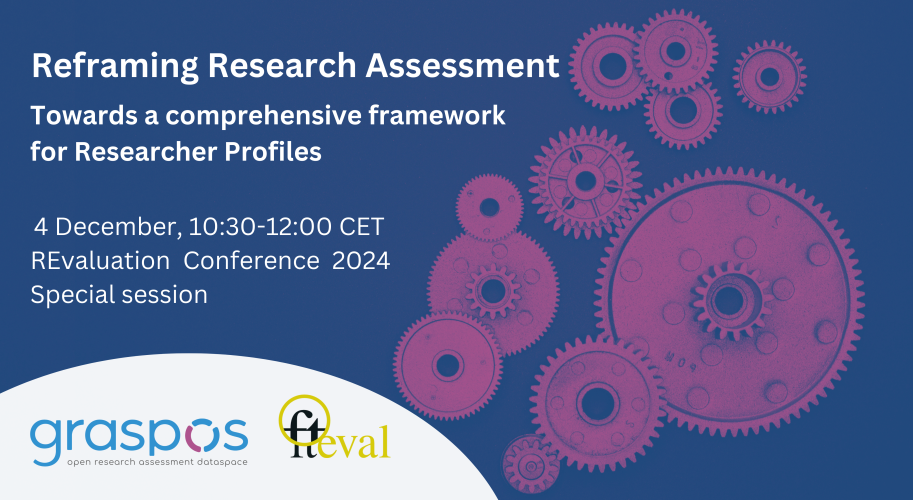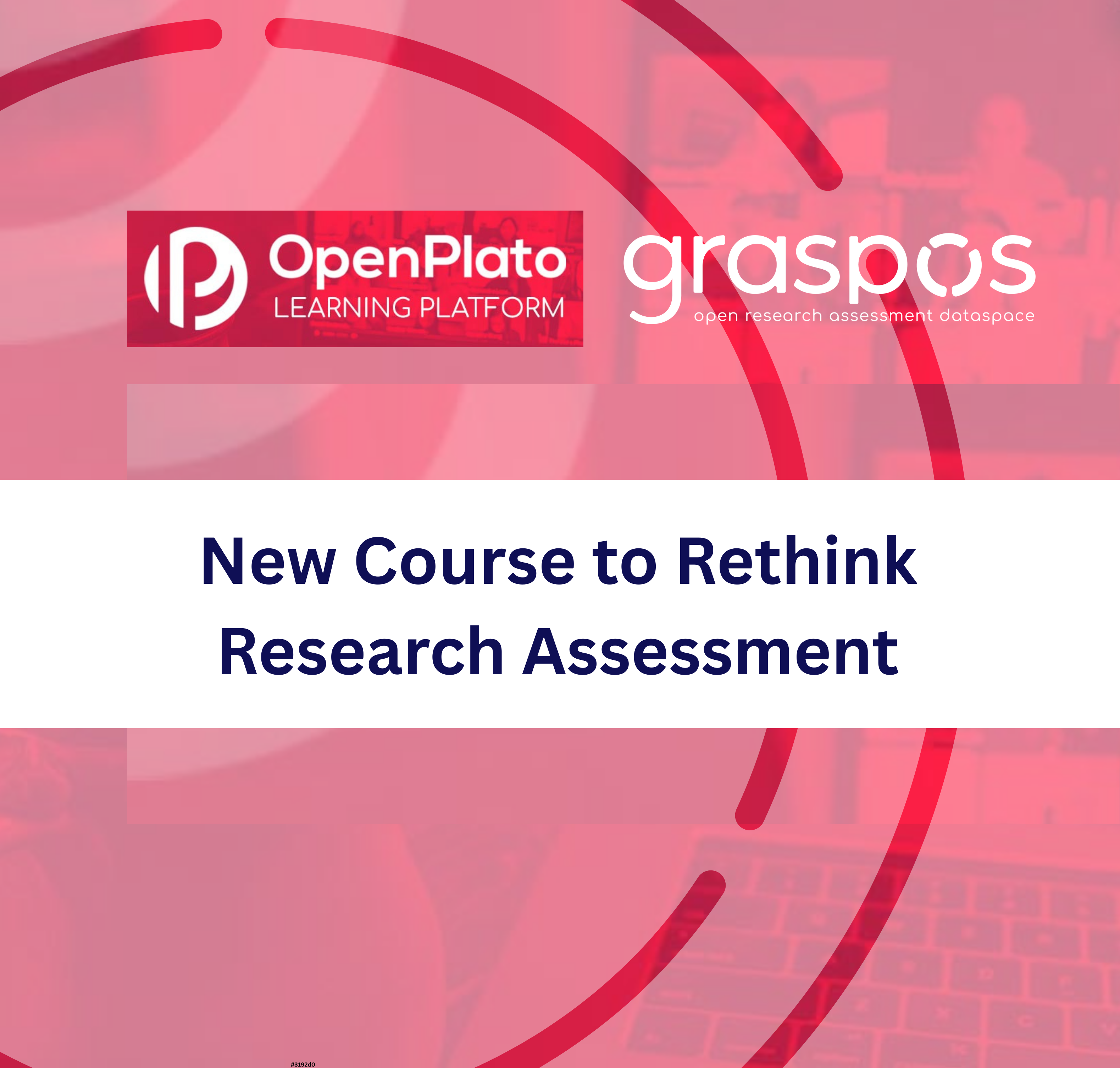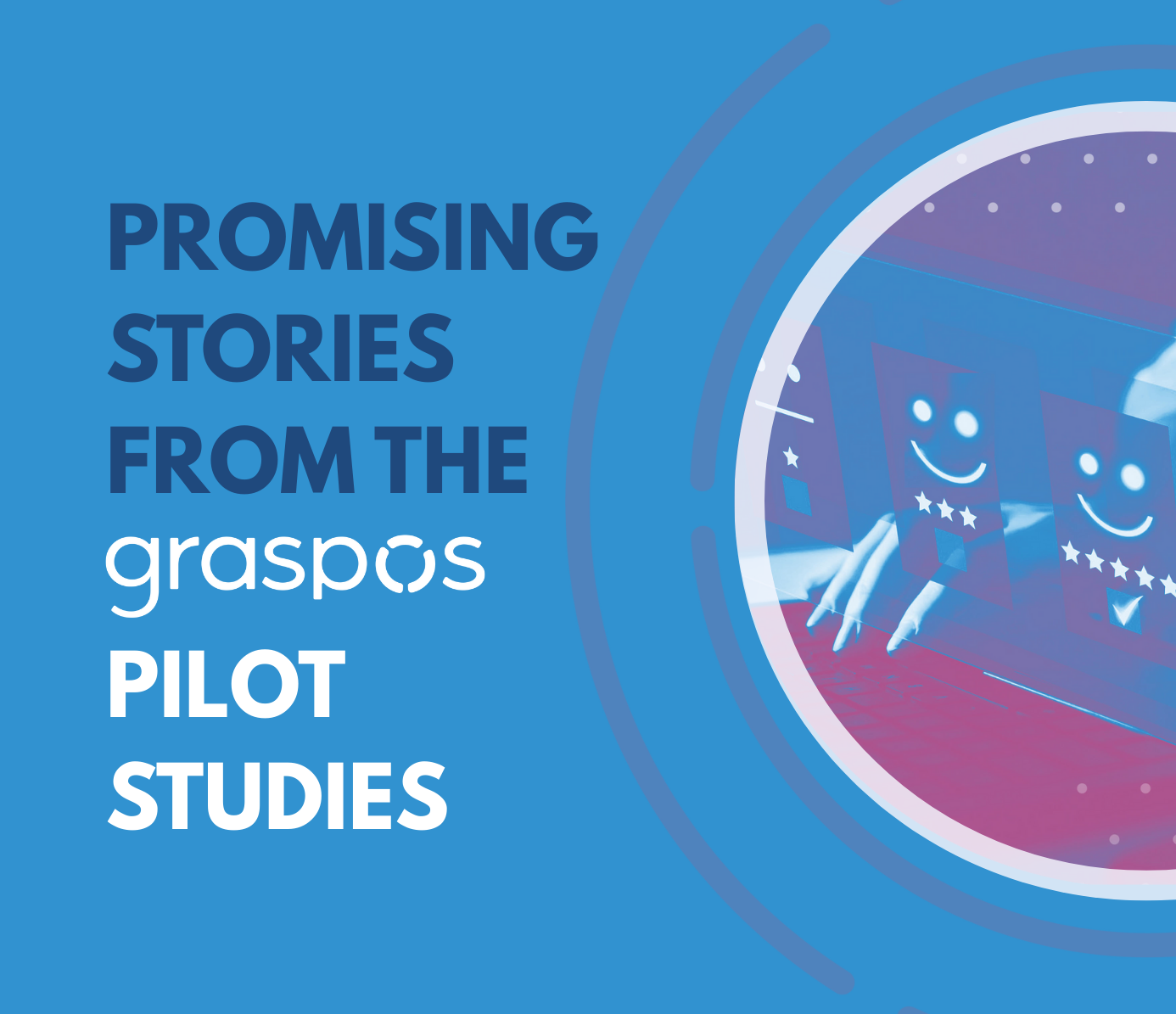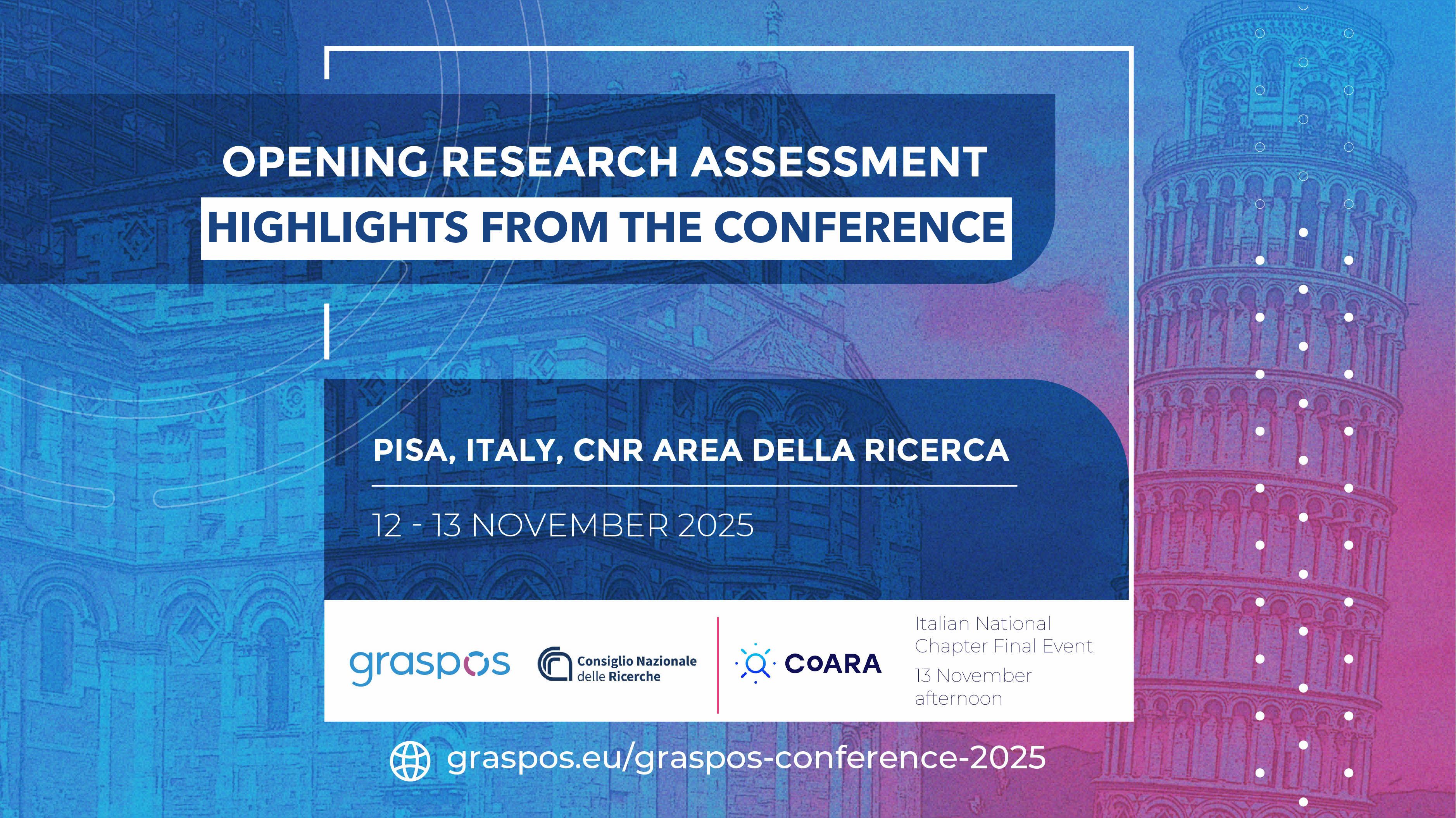Reframing Research Assessment: towards a comprehensive framework for Researcher Profiles

On 4th December, in the special session on responsible research assessment at the REvaluation Conference 2024 in Vienna, Zenia Xenou (OpenAIRE) and Lottie Provost (National Research Council of Italy) will present an innovative framework for Researcher Profiles, currently under development in the GraspOS project.
As interest in the reform of research assessment practices keeps growing, research institutions are in need of new tools supporting assessment systems that incentivise Open Science practices and value the diversity of outputs and roles in research. Following the INORMS and DORA policy recommendations on a responsible approach to research assessment (INORMS Research Evaluation Group, 2023; DORA, 2024), GraspOS is working on the development of a tool to support research funding and performing organisations in implementing the Agreement on Reforming Research Assessment (ARRA) commitments, and in particular Commitments 1 and 2.
Commitment 1.
Recognise the diversity of contributions to, and careers in, research in accordance with the needs and nature of the research.
Commitment 2.
Base research assessment primarily on qualitative evaluation for which peer review is central, supported by responsible use of quantitative indicators.
The tool is envisaged as a framework for Researcher Profiles which combines quantitative and qualitative information, including narrative input, with the aim to provide a broad, comprehensive picture of a researcher’s contributions to science and society.
Streamlining Researcher profiles: From Landscape Analysis to Prototype
Using information gathered from several profiles and platforms, we created our landscape analysis. This included research activities, metrics, indicators, and other relevant information. Inspired by the OPUS program, a sister project, we integrated some of its features and categorised the data into three core areas: Research, Education, and Valorization. In collaboration with GraspOS partners, we identified key areas of interest within each category. This comprehensive analysis laid the groundwork for developing a prototype researcher profile, providing a holistic view of their contributions beyond publications.
Figure 1. Illustration of the process to develop the Researcher Profile
Innovative features of the Researcher Profile
An interactive timeline showing a researcher’s interests and research topics, over time. The interactive timeline is a dynamic, chronological representation of events, which users can explore by clicking or hovering on different elements to reveal additional information, allowing them to explore data or narratives in a more engaging way.
A section for research outputs which takes into account the diversity of research results by including publications, preprints, datasets, softwares, patents, and other research-related products. To allow researchers to provide context and to elaborate on the activities carried out, the rationale, the outcomes, or to add any other relevant information, a narrative box has been added and can be filled in for each output.
A section to recognise engagement with Open Science, rewarding researchers who contribute to making scientific knowledge openly available, accessible and reusable for all; to increasing scientific collaborations and sharing of information; and to opening the processes of scientific knowledge creation and communication to societal actors. The Researcher Profile aims to take into account three pillars of Open Science, as reported in the UNESCO Recommendation on Open Science: open scientific knowledge, open science infrastructures, open engagement of societal actors.
A Narrative CV section structured following the Royal Society’s Resumé for Researchers to allow researchers to provide context on their research, and to highlight their skills and experience throughout their career. To provide a comprehensive view of a researcher’s career progression, the Narrative CV includes additional modules to present additional experiences, such as extra curricular or voluntary work.
A section on Valorization will complete the researcher profile by presenting the impact of their activities at societal and economic levels. The Valorization section focuses on the wider impact of research beyond academia, thereby recognising and valuing research and researchers who tackle real-world problems and bring significant benefit to society.
|
|
A live demo of the framework will conclude the presentation, providing insights into how this framework could support evolving research assessment needs in Europe. |
WHEN: 4th December 2024, 10:30 - 12:00 CET
WHERE: REvaluation Conference 2024, Vienna
WHO: Zenia Xenou, OpenAIRE This email address is being protected from spambots. You need JavaScript enabled to view it. , and Lottie Provost, CNR This email address is being protected from spambots. You need JavaScript enabled to view it.
This article was written by Lottie Provost and Xenia Zenou.



